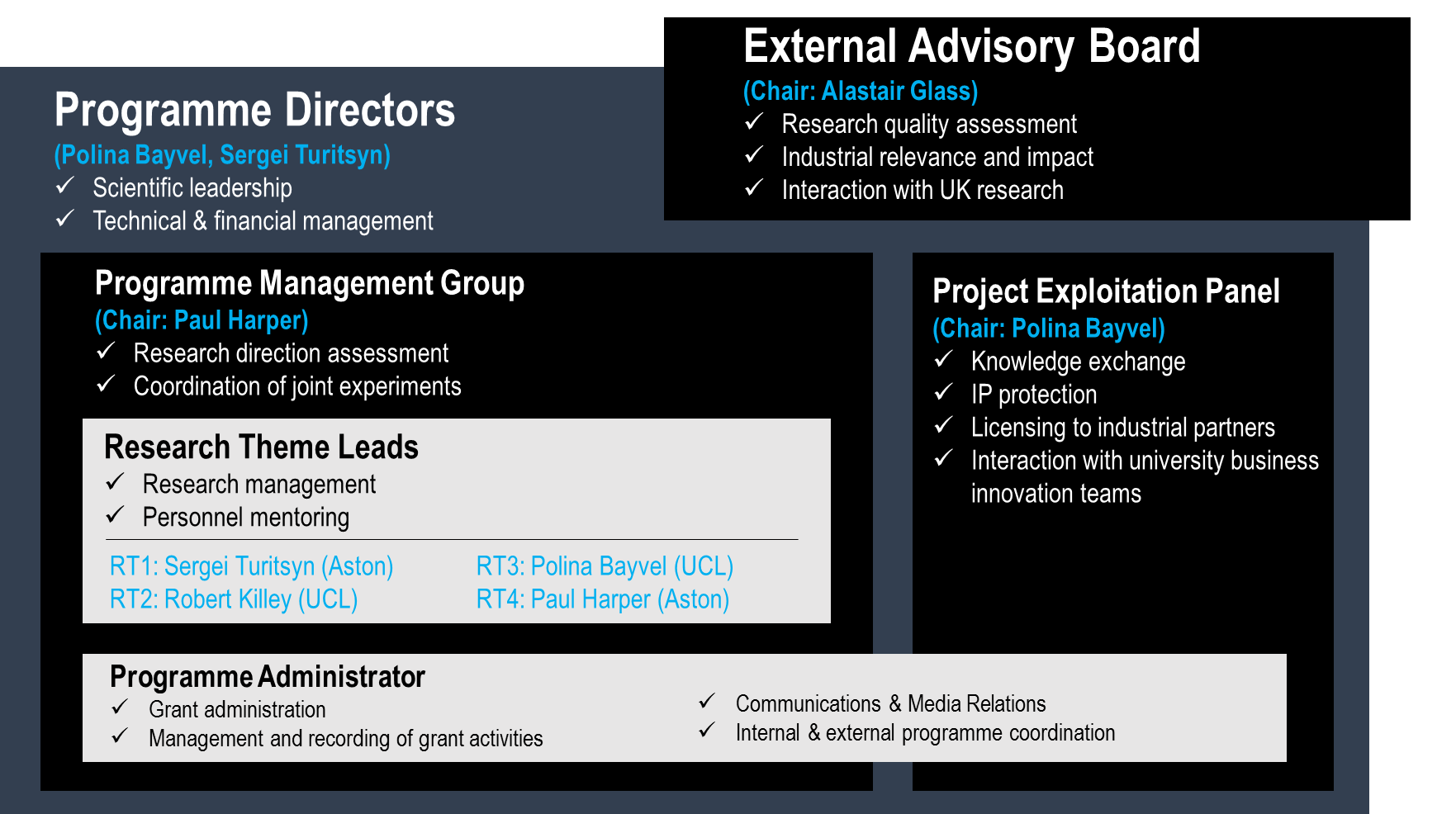Organisation

The UNLOC research programme is highly ambitious in its research aims. Our overall management structure and strategy have been designed to:
- achieve the research objectives of developing techniques to maximise the capacity and intelligence of the future information infrastructure
- allow for flexible use of resources, channelling these towards areas of greatest research potential and impact, whilst minimising, monitoring and mitigating risks
- maximise the information flow to all programme participants enabling timely decisions to be taken on research priorities and theme relationships
- maximise the impact to academic, industrial and government partners and stakeholders
- ensure effective career development of the research staff
Programme Management Group
The Programme Management Group (PMG) includes the Principal Investigator and all Co-Investigators and is responsible for specific technical areas within the work programme. Formal meetings of the PMG are held several times a year to:
- communicate results
- critically evaluate progress between themes and work packages and the interactions between these
- develop, control and update of the work programme
- review technical priorities and undertake future planning
- set task forces for specific technical cooperation between work packages
- control the status of technical milestones and deliverables
Dr. Paul Harper serves as the Project Manager for the PMG, and coordinates the deliverables, milestones and logs the achievements and the risks identified, as well as the interconnection between the different work packages, and research themes (RT).
External Advisory Board
The External Advisory Board (EAB) is composed of leading national and international experts advising on three aspects:
- quality of the research in the international context
- industrial relevance and impact
- relationship to other leading UK & international programmes.
The objectives of EAB are to provide critical evaluation and guidance to the project leadership and to ensure relevance to EPSRC priorities and high quality of the project outcomes. The EAB is chaired by Dr Alastair Glass (Tyndall National Institute). The EAB convenes annually to review the progress of the programme. An important function of the EAB will also be to advise the Project Exploitation Panel on the best use of the generated knowledge and IP.
Project Exploitation Panel
The role of Project Exploitation Panel (PEP) is to plan, implement and monitor all the activities related to the exploitation of the project results. The PEP will include the Programme Director (PI) and deputy director, and a subset of members of the EAB/project partners with expertise in knowledge exchange as well as the representatives of the UCL and Aston business and innovation units. Given the importance of the exploitation of all potential IP, the PEP will bring together the technology transfer and legal expertise to ensure that knowledge with potential value is identified, tracked, protected and exploited throughout the project. It will not only proactively track research for knowledge but will also train researchers to enable protection and exploitation to maximum effect. The PEP meets annually.
Grant Administration & Communications Manager
Administrative day-to-day management of the grant is led by the Grant Administrator who also organises all internal and external meetings and maintains records for the project deliverables, milestones, reports and publications. The Grant Administrator also assumes the role of Communications Manager who is responsible for all website presence, internal and external dissemination of research results and achievements.
